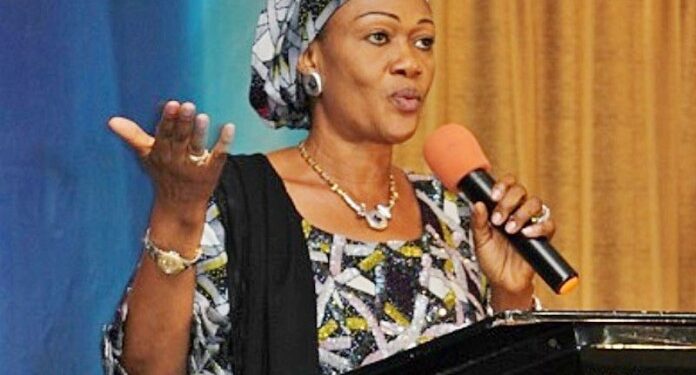Nigeria’s First Lady, Oluremi Tinubu, has opened up about experiencing overwhelming fear, doubt and isolation following the 2023 general election, admitting she questioned whether she was prepared to serve as First Lady of Africa’s most populous nation.
In a 52-page memoir titled The Journey of Grace: Giving Thanks in All Things, released to commemorate her 65th birthday, Mrs Tinubu provided candid details about the emotional turmoil she endured in the period between her husband’s electoral victory and his inauguration as president.
“As for me, I had a lot of mixed feelings, questioning my readiness and capability to function effectively and optimally as the First Lady of so great a nation as ours,” she wrote, describing how the weight of public expectation affected her deeply.
The First Lady revealed that in the days before President Bola Tinubu’s inauguration on May 29, 2023, she frequently wept in private, grappling with feelings of loneliness and betrayal by people she had considered close friends and spiritual family members.
“Despite the victory, I felt alone, weeping behind closed doors and wondering why I was betrayed by some of those I considered friends and spiritual family, many of whom I had opened up my home and my family to,” Mrs Tinubu disclosed.
She acknowledged hosting occasional “pity parties” during this difficult period, admitting that she struggled to identify who she could turn to for support and counselling. However, she credited her mentor with consistently reminding her of God’s promises, which helped her silence the voices of critics and overcome despair.
“It was now time to move on and start planning what to do that would benefit our people; also, to prepare for the inauguration and mend body, soul and spirit,” she wrote, describing how faith eventually restored her confidence and refocused her attention toward service.
While President Tinubu assembled his cabinet, the First Lady began developing her own programme. She revealed that her signature project, the Renewed Hope Initiative, was deliberately designed to complement her husband’s Renewed Hope Agenda, focusing on five key areas: agriculture, economic empowerment, education, health and social investment.
“My first line of thought was that my programme has to be in sync with the President’s Renewed Hope Agenda, and I aptly settled for Renewed Hope Initiative,” she explained.
The memoir also shared intimate details about preparations for the May 29 inauguration ceremony. Mrs Tinubu recounted unexpected difficulties in selecting her outfit, noting that most of the garments made for her did not meet her vision. She wanted to wear traditional fabric worn by royalty, specifically Alari or Etu, and only received a suitable set from a close friend barely a week before the event.
“In a few days, I had the outfit I wore. For the remaining activities, old clothing from my closet came in handy,” she wrote, adding that her husband’s attire took priority because “it is his first big day before any other person.”
Mrs Tinubu also addressed the controversy surrounding her husband’s Muslim-Muslim ticket, acknowledging that it took an emotional toll on her and strained her relationships with church groups. She said the backlash from the Christian Association of Nigeria and the Pentecostal Fellowship of Nigeria left her feeling isolated even within her own local church.
The memoir offers a rare glimpse into the personal challenges faced by Nigeria’s First Lady during a pivotal moment in her life and the nation’s history.

















